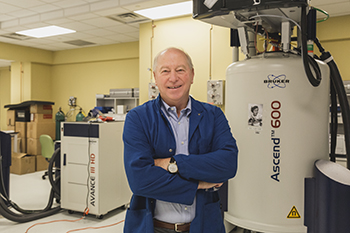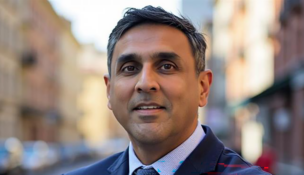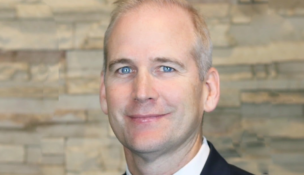Trump administration chooses RVA pharma startup for $354M COVID-19 contract
Phlow Corp. will create domestic supply chain for coronavirus drugs
Sydney Lake //May 19, 2020//
Trump administration chooses RVA pharma startup for $354M COVID-19 contract
Phlow Corp. will create domestic supply chain for coronavirus drugs
Sydney Lake //May 19, 2020//
Richmond-based drug manufacturing company Phlow Corp., which incorporated this year, announced Tuesday that the Trump administration has awarded it a $354 million, four-year contract to manufacture in the U.S. generic medicines and pharmaceutical ingredients needed to treat COVID-19, creating an American supply chain for medical products that are now made mostly in China and India.
The award from the Biomedical Advanced Research and Development Authority (BARDA), a branch of the U.S. Department of Health and Human Services, could be extended to be worth $812 million over 10 years. A May 18 New York Times article about the award noted that it was unclear why the Trump administration had chosen such a new company for the contract, which is one of the largest ever awarded by the authority.
“Years from now, historians will see this innovative project as a defining moment and inflection point for protecting American families — and our country — from current and future public health threats,” Peter Navarro, director of the White House Office of Trade and Manufacturing Policy, said in a statement.
Although Phlow incorporated in January, co-founder and CEO Dr. Eric Edwards says his company had been working on a domestic drug supply chain project for more than a year. Edwards and his twin brother, Evan, co-founded Richmond-based pharmaceutical company Kaléo, which sells the Auvi-Q injectable pen they developed for emergency allergy treatment. Both brothers left Kaléo in 2019.
“Phlow assembled the right partners at the right time, focused on a critical infrastructure lost over decades, and have been working on it for over a year,” Edwards says.
Phlow, which prides itself on using U.S. manufactured medicines and ingredients, will work with Civica Rx (a nonprofit that works to secure generic drug supply chains), Virginia Commonwealth University’s Medicines for All Institute and AMPAC Fine Chemicals (a California-based manufacturer with a plant in Petersburg), to produce chemical ingredients, active pharmaceutical ingredients (APIs) and finished dosage forms, including vials and syringes, for more than a dozen essential medicines needed to treat hospitalized COVID-19 patients.

A year ago, Dr. Frank Gupton of VCU’s Medicines for All Institute called on Edwards and his team for help with creating a domestic supply chain for higher-yielding drug ingredients with a smaller environmental footprint and lower cost. At the time, Gupton and his team were developing drugs to treat HIV, tuberculosis and malaria, but Gupton wanted to expand the project to address a major issue in the U.S. — drug shortages, Edwards says. Together, they started developing pediatric medicines and treatments for rare diseases, leading Edwards and Gupton to co-found Phlow.
Then COVID-19 hit.
“We immediately knew that all these drugs and essential ingredients that were already in shortage before COVID-19, that it was going to be a major, major issue,” Edwards says. “We were one of the first corporations in the country to reach out to the [Trump] administration and say, ‘These are the 30 to 40 critical medicines that are going to run out and are going to be pulled from the supply chain by hospitals. We need to have the U.S. secure a supply immediately.’” Approximately 80% of active drug ingredients are produced overseas, Edwards says.
After approaching the federal government with their plan to secure the U.S. supply chain with generic drugs to treat COVID-19 patients, BARDA awarded the team the contract.
Phlow and its partners have a two-pronged strategy planned to implement the contract, Edwards says. The first part concerns forming a “rapid surge response” to deliver as many essential medicines as fast as possible to the U.S. Strategic National Stockpile (SNS). To do this, Civica turned on its manufacturing network to make as many medicines as possible. The second phase, Edwards says, will be to create a massive infrastructure project to build an industrial base for end-to-end pharmaceutical manufacturing in the U.S.
“BARDA has long focused on expanding pharmaceutical manufacturing infrastructure in the United States, not only to develop and produce vaccines, but also for essential medicines, and their key ingredients used to make these drugs,” BARDA Acting Director Dr. Gary Disbrow said in a statement. “Collaborating with Phlow and its partners is an important step in expanding our manufacturing of strategic APIs and critical medicines at-risk of shortage.”
Phlow will acquire a parcel of land next to the AMPAC facility in Petersburg and build out infrastructure from there. Civica will also build a facility on the same site, although an exact timeline isn’t yet in place. The new joint facility will create approximately 350 jobs, Edwards says. There, the partners will develop the U.S.’s first Strategic Active Pharmaceutical Ingredients Reserve (SAPIR), which Edwards says will help to secure key ingredients needed to manufacture essential medicines in the U.S.
“Instead of the federal government securing a supply of vials and syringes that often have an expiration date — even sometimes only 12 months — we’re actually going to be protecting the most essential medicine ingredients for those finished dosage forms,” Edwards says.
Although Phlow’s project focuses on developing U.S. supply chains, Edwards says it’s important to know that this isn’t intended to eliminate all international supply chains for pharmaceuticals.
“Phlow is not trying to say 100% of all medicines should be made in the United States,” Edwards says. “Phlow believes that a global supply chain is important. What we’re saying is that the United States must secure a national, end-to-end supply chain of its most essential and critical medicines to the health and well-being of Americans in the case of supply chain disruption.”
T



















